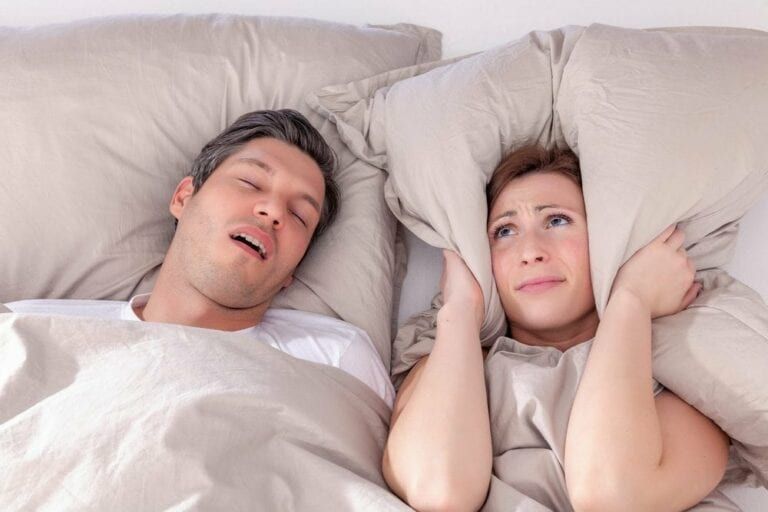Sleep Apnea and Oral Appliances

What if I have been diagnosed with obstructive sleep apnea (OSA)?
If your doctor has found that you have OSA, you will be offered treatment options. Generally, the gold standard for treating OSA is a continuous positive airway pressure (CPAP) machine. For various reasons, CPAP may not work for you. Another option is oral appliance therapy which resembles a mouth guard used by athletes.
How does oral appliance therapy work to treat obstructive sleep apnea (OSA)?
For patients with mild to moderate obstructive sleep apnea, dental appliances or oral mandibular advancement devices that prevent the tongue from blocking the throat and/or advance the lower jaw forward can be made. These devices help keep the airway open during sleep. A sleep specialist and dentist with expertise in oral appliances for this purpose should jointly determine if this treatment is best for you.
How do I order an oral appliance for obstructive sleep apnea (OSA)?
If you and your doctor decide that an oral device is a good option, you will need a referral to an appropriate dentist to have an evaluation. The dentist will decide if you are a candidate for this treatment and make an impression of your teeth. The dentist will make the device and call you back for a fitting. You will also be given a morning repositioner to realign your bite after the appliance is removed. He or she will also give you instructions on how to use and clean the appliance. You might also have to go back to the dentist for further custom adjustments to optimize care. Once care is completed, it is recommended that have another sleep test to see how the appliance is working for you. Further adjustments may be necessary.
What are the risks of oral appliance therapy for obstructive sleep apnea (OSA)?
The risks of oral appliance therapy include:
- Bite changes
- Pain in the jaw, teeth, and temporomandibular joint (TMJ) pain
- Loose teeth
- A need for dental work replacement
- Excessive drooling
- Mouth dryness
What are the benefits of oral appliance therapy for obstructive sleep apnea (OSA)?
Oral appliance therapy:
- Can improve symptoms of OSA, including daytime sleepiness, moodiness, concentration issues and reduce or eliminate snoring.
- Offers another option for people who cannot tolerate CPAP
- Is easier to take along when traveling
- Works without electricity
- Is quiet
What questions should I ask my doctor and dentist about an oral appliance to treat obstructive sleep apnea (OSA)?
- How much does oral appliance therapy cost?
- Will oral appliance therapy be covered by medical or dental insurance?
- What kinds of problems should I be looking for?
- How many visits will this require?
- How many sleep tests will I need to take?
- How long will the device last?
- Are there things that I should avoid doing or eating?
